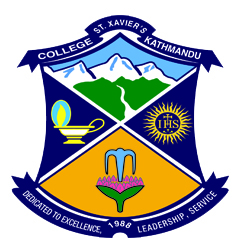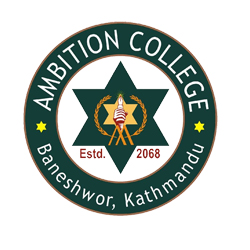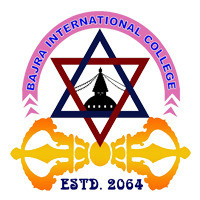Overview
Bachelor of Social Work (BSW) at Pashupati Multiple Campus, Mitrapark, Chabahil, Kathmandu
Bachelor of Social Work (BSW) at Pashupati Multiple Campus (PMC), Mitrapark, runs under Tribhuvan University (TU). The program prepares you for practical, community-focused work through classroom study and supervised fieldwork each academic year.
Students learn case work, group work, community organization, social policy, research methods, and reporting skills relevant to Nepal’s social sector. This profile explains curriculum scope, entry rules, learning approach, skills, and career routes for BSW in Kathmandu, Nepal.
Highlights
Affiliation: Tribhuvan University (TU), Faculty of Humanities and Social Sciences
Level and Duration: Undergraduate, four years (annual system)
Campus Location: Mitrapark, Chabahil, Kathmandu
Learning Mode: Classroom study, tutorials, seminars, and fieldwork each academic year
Academic Support: Counselling, library access, computer lab access, and basic placement guidance
Target Learners: Students aiming for community service, NGO/INGO roles, school and youth programs, social research, and local government social units
Introduction
Students choose BSW when they want a clear, structured path into social work practice. The degree gives you subject knowledge and field exposure in equal measure. You study theory during the week, then apply it during supervised field placements. Field learning helps you connect classroom concepts to real settings such as community schools, health posts, child and women support centers, or local ward programs.
Pashupati Multiple Campus offers BSW within its BA framework. You study core social work papers alongside relevant social-science support subjects. The campus follows TU’s academic calendar, internal evaluation (where applicable), and annual examinations. Faculty members guide you through course planning, field orientation, and reporting formats expected for each placement.
Curriculum Details
Year-wise Structure:
Students progress through foundation, method, and advanced practice courses. Each year carries a mix of theory and field hours coordinated by the department.
Core Study Areas:
-
Introduction to Social Work: History, values, ethics, scope, and practice fields in Nepal
-
Social Case Work: One-to-one support, rapport building, case notes, and referral mapping
-
Social Group Work: Small-group facilitation, participation, goal setting, and reflection
-
Community Organization: Community entry, resource mapping, local institutions, and event planning
-
Social Policy and Legislation: Nepal’s policy framework, protection laws, service delivery structures
-
Psychology for Social Work: Basic human development, behavior, and motivation for practice decisions
-
Research Methods: Qualitative and quantitative basics, tools, sampling logic, and simple analysis
-
Fieldwork (every academic year): Supervised placement, periodic reviews, and a final report or viva
Supportive and Elective Components:
Students study communication skills, academic writing, Nepali/English language support, and context subjects such as rural development, population studies, or sociology as approved by TU’s BA framework. Departmental notices provide the exact subject mix at the start of the session.
Assessment and Evidence of Learning:
Internal tasks may include class tests, reflective journals, case presentations, group facilitation records, and field supervisor feedback. Annual examinations run under TU rules. Fieldwork reports and viva voce panels complete the yearly requirement.
Objectives
-
Build a grounded understanding of social work values, ethics, and practice principles in Nepal
-
Develop method skills in case work, group work, and community organization for local contexts
-
Strengthen policy literacy on welfare, child protection, gender-based violence, disability, and livelihoods
-
Improve research literacy for small studies, needs assessments, and program feedback cycles
-
Prepare graduates for entry-level roles in social programs, schools, municipalities, and NGOs/INGOs
Scope
Graduates find roles in community programs, social protection projects, school counselling support units, health outreach, and youth development initiatives. Municipal and ward offices often seek graduates who can coordinate with schools, health posts, and civil society groups. NGOs and development partners require field workers and junior researchers for documentation, mobilization, and reporting. Many graduates sit for public service exams or pursue higher study (MSW, MA Sociology, public health, education).
Learning Outcomes
Students who complete the BSW at PMC typically can:
-
Plan and document case work processes using ethical standards
-
Facilitate group sessions with youth, parents, or community volunteers
-
Organize small community events, orientations, and information sessions
-
Draft simple project documents: concept notes, meeting minutes, and activity reports
-
Collect field data through interviews, focus groups, or observation and present key findings
-
Work within safeguarding and confidentiality rules set by host organizations
-
Communicate with diverse groups in Nepali and English using clear, respectful language
Skill Development Modules
Practice and Communication Skills
Students learn basic counselling micro-skills such as active listening, paraphrasing, and goal setting within the limits of entry-level practice. Written work covers case notes, group session plans, handouts, and community notices.
Field Documentation
Students prepare daily diaries, weekly summaries, and a final report. Faculty and supervisors review documentation for accuracy, clarity, and ethical compliance.
Community Mapping and Mobilization
Students practice resource mapping, stakeholder listing, and small-scale mobilization for health, education, or protection messages. Activities can include home visits with consent, parent meetings, or ward-level events.
Research Basics
Students gain simple tools for designing small field studies, preparing questionnaires or checklists, and summarizing data for use in program discussions.
Digital and Office Skills
Students use office applications to prepare reports, slides, and basic data tables. Library and computer lab access support this work.
Teaching Methodology
Faculty members combine lectures with guided discussions, tutorials, role plays, and field orientation. The department posts a placement plan each academic year. Students receive briefing sessions before entering the field, supervision during placement, and debrief sessions at mid-term and final points. Field supervisors sign attendance and comment on performance using campus formats. The department conducts periodic seminars where students share field experiences and improve presentation skills.
Admission Requirements
Entry Qualification
Applicants must have completed Ten Plus Two (+2) or equivalent with a minimum D+ in all subjects as per TU rules for bachelor-level entry. Students from any stream can apply.
Application Steps
-
Collect the application form during the intake window
-
Submit academic transcripts, character certificate, and any other documents listed in the campus notice
-
Attend the orientation or interview if the department schedules one
-
Confirm admission within the stated deadline
Seat Availability and Session Timing
The campus announces seat numbers and class timing (morning/day) for BSW in the annual intake notice. Students should check the deadline for form submission, merit list publication (if applicable), and fee payment schedule.
Curriculum Examples by Year
Year I (Foundation and Orientation):
Introduction to Social Work, basic psychology, Nepal’s social structure, academic writing, and field orientation. Students learn ethics, confidentiality, and reporting templates before a short placement.
Year II (Method Papers and Fieldwork):
Social case work, social group work, and community organization. Students run small group sessions, plan a community visit, and submit a mid-year portfolio.
Year III (Policy, Research, and Practice):
Social policy and legislation, research methods, and elective support papers. Students design a small field study or needs assessment with faculty review.
Year IV (Integration and Reporting):
Advanced field placement, seminar presentation, and a consolidated final report or viva. Students present a summary of outcomes, reflections, and recommendations from their placement.
Exact paper codes and annual schedules follow TU’s BA/BSW framework. The department shares the official list for each session.
Career Opportunities
Entry-Level Roles
-
Community mobilizer, field officer, or program assistant
-
School support staff for counselling or child protection units
-
Ward or municipal desk support for youth, disability, or social protection services
-
Assistant roles in NGOs, INGOs, or research groups for data collection and field logistics
Growth Routes
-
MSW or MA (Sociology/Anthropology) for advanced practice and research
-
Specialized short courses: child protection, psychosocial first aid, gender-based violence response, inclusive education, or disability inclusion
-
Competitive exams for public service roles where social sector knowledge adds value
Scholarships and Financial Aid
PMC follows public-campus norms under TU policy. The campus may consider support for remote-district and board toppers, and for needy and deserving students as per rules. Intake notices outline categories, required documents, and submission deadlines. Students also track national and external schemes that accept applications from TU-affiliated learners.
Student Support and Facilities
Library and Reading Room
Students access course texts, reference materials, journals, newspapers, and exam prep resources. The reading room supports quiet study during working hours.
Laboratories and ICT Access
Computer labs help with report writing and presentations. Internet access during scheduled hours supports research and data entry.
Counselling and Placement Guidance
The campus counselling unit supports course planning, resume preparation, mock interviews, and documentation review for placement or internships.
Why Choose This Course?
You prefer direct community engagement and want a structured route into social sector work. The BSW at PMC offers steady classroom learning and real field exposure each academic year. The location in Mitrapark gives you access to public transport and organizations that often host student placements. The TU framework ensures a recognized degree for further study and employment in Nepal.
Conclusion
Bachelor of Social Work at Pashupati Multiple Campus provides a clear, practice-oriented pathway for students who plan to serve communities and contribute to social programs in Nepal. The annual system, supervised fieldwork, and method courses give you the confidence to work in real settings. Students who need exact paper lists, seat numbers, fee details, or class timing should refer to the current campus notice.
Frequently Asked Questions (FAQ)
1) Does BSW at PMC include fieldwork every year?
Yes. Students complete supervised fieldwork each academic year with reporting and review.
2) Can students from non-management or non-science backgrounds apply?
Yes. Students from any stream who meet TU’s bachelor-level entry rule (minimum D+ in all subjects) can apply.
3) Do I need to pass an entrance exam?
TU generally does not require a centralized entrance for BA/BSW. The department may hold orientation or an interview as noted in the campus notice.
4) Which organizations host placements?
Host organizations vary by year. Students often work with community schools, ward offices, health posts, or NGOs that match field objectives.
5) What documents are required for admission?
Applicants usually submit academic transcripts, character certificate, recent photos, and any additional forms listed in the intake notice.
6) What skills will I develop by graduation?
Students learn case documentation, group facilitation, community event planning, simple research, and clear reporting in Nepali and English.
7) Can I continue to MSW after BSW?
Yes. Graduates commonly pursue MSW or related master’s programs such as MA Sociology or public health.
8) Does PMC provide scholarships for BSW?
Scholarships follow TU and campus rules. Intake notices specify categories and application steps.
9) Are evening or morning classes available?
Class timing is published in the campus notice for the current session. Students should confirm the schedule during admission.
10) Where do I find the latest updates?
Students should track Pashupati Multiple Campus notices and TU academic calendars for deadlines, paper lists, and exam dates.






















